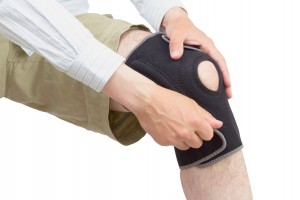Knee Pain: Causes, Self Treatments, and Alternatives
Pain in the knee can be be caused by an underlying medical condition, such as rheumatoid arthritis, more commonly result from mechanical injury (resulting in knee ligament tears) or overuse.
Knee pain is a common problem we face as we age, because the natural lubrication and cartilage of joints tend to diminish, resulting in frictional wear and tear.
Signs and Symptoms accompanying knee pain may include:
- Knee redness and swelling
- Knee weakness
- Knee joint instability
- Popping, crunching, or grating sounds when bending the knees

Always consult a doctor early to determine the cause of your knee pain to exclude serious underlying medical conditions and to determine the best approach of treatment. Some situations when it is even more urgent to consult a doctor include:
- You experience marked or uncomfortable swelling
- You are unable to use the knee properly
- You are not able to extend the knee or flex it completely
- Symptoms are accompanied by fever
- Your knee “gives out” or feels unstable
- You cannot bear weight
Causes of Knee Pain include:
- Arthritis and Osteoarthritis
- Mechanical problems (such as looseness or gaps in the joints, dislocated knee cap)
- Injury (knee bursitis or torn meniscus and sprained ligaments)
Not all knee problems are serious, but ignoring the pain over time, can be detrimental. The knee joint can degenerate, worsening the problem, and the pain. Knee surgery, though usually done as a last resort, is unfortunately too common.
Self-Treatments for Knee Pain
Self treatment is commonly remembered using the acronym RICE:
Rest – Stop the activity that caused the pain.
Immobilize – keep the knee in a comfortable fixed position.
Cold – apply a cold pack to the area.
Elevate – raise the sore area by placing pillows underneath, while sitting or lying down.
Medical Treatment of Knee Pain
Most doctors will start a patient with a sort course of painkillers. Physiotherapy while commonly prescribed, tends to require much time and patients. Knee injections (steroidal, visco-supplementation and platelet rich plasma injections) are sometimes carefully used after taking into account the potential risks of infection and bleeding.
Some newer non invasive options include the Indiba Activ and tissue repair joint supplements used by patients looking for more long term results.
If you are suffering from knee pain, or if your condition has not improved despite standard treatments and have been told to consider knee surgery,
simply call us at +65 6732 2397 or leave a message below for Dr Tan to discuss a customized non-invasive solution for you.
